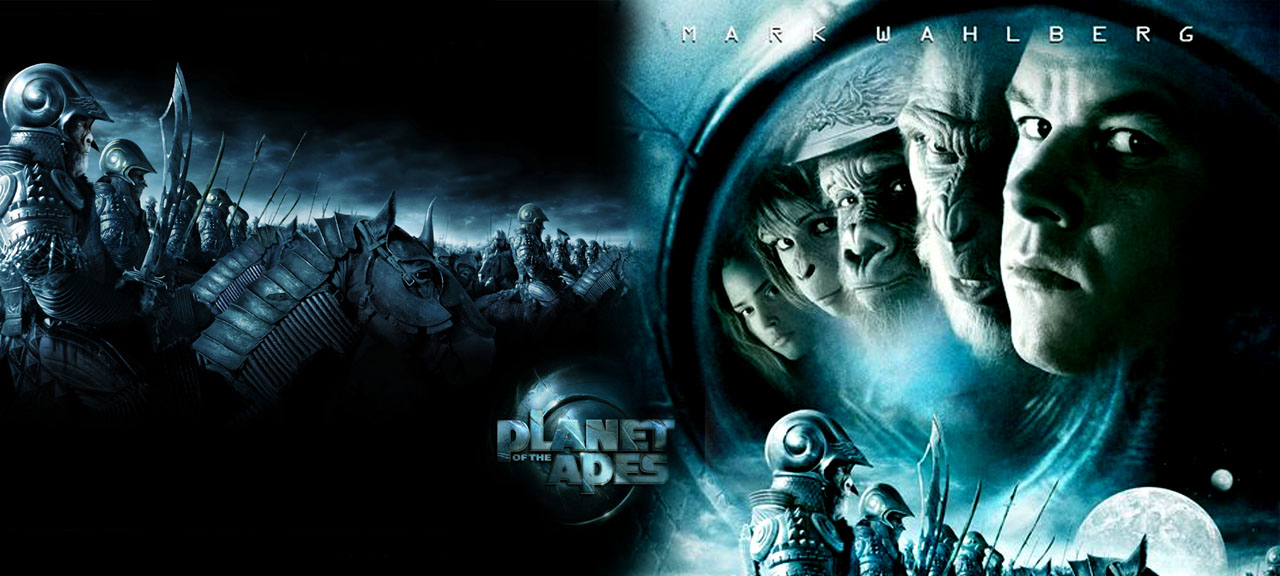
Planet of the Apes is a beloved science fiction film franchise that has captivated audiences since its inception in 1968. The original movie, directed by Franklin J. Schaffner and based on the novel by Pierre Boulle, follows the story of a group of astronauts who crash-land on a planet inhabited by intelligent apes. The film explores themes of societal hierarchy, scientific advancements, and the blurring line between humans and animals. Over the years, the franchise has expanded to include numerous sequels, reboots, and spin-offs, garnering a dedicated fanbase and critical acclaim. In this article, we will delve into 47 fascinating facts about the Planet of the Apes movies, shedding light on the behind-the-scenes stories, memorable moments, and enduring legacy of this iconic sci-fi series.
Key Takeaways:
- The Planet of the Apes franchise began as a novel and has captivated audiences for over 50 years with its thought-provoking storytelling, groundbreaking special effects, and unforgettable characters.
- The franchise’s enduring legacy continues to inspire new generations of fans, sparking discussions about societal issues, the boundaries of science, and the fragility of human civilization.
The Planet of the Apes franchise began with a novel
The iconic Planet of the Apes movie franchise actually started as a novel written by Pierre Boulle in 1963.
The movie was released in 1968
The original Planet of the Apes movie was released on February 8, 1968, captivating audiences with its unique storyline and groundbreaking special effects.
Charlton Heston starred as the main protagonist
Charlton Heston portrayed the character of George Taylor, an astronaut who crash-lands on a mysterious planet ruled by intelligent apes. His performance was lauded by both critics and audiences.
The movie’s iconic line “Take your stinking paws off me, you damn dirty ape!”
One of the most memorable lines in the movie, spoken by Charlton Heston’s character, has become a cultural phenomenon and is often quoted by fans of the franchise.
The elaborate ape makeup took hours to apply
The realistic makeup used to transform the actors into apes was a painstaking process that could take up to five hours to complete. The incredible detail added to the authenticity of the film.
The movie was a critical and commercial success
Upon its release, Planet of the Apes received positive reviews from critics and became a box office hit, grossing over $32 million worldwide.
The film’s ending is considered one of the greatest twists in movie history
The shocking and thought-provoking ending of the original movie, where it is revealed that the planet was actually Earth all along, has been praised as one of the most unforgettable twists in cinematic history.
Planet of the Apes spawned four sequels
The success of the first movie led to the creation of four sequels: Beneath the Planet of the Apes (1970), Escape from the Planet of the Apes (1971), Conquest of the Planet of the Apes (1972), and Battle for the Planet of the Apes (1973).
The franchise was rebooted in 2001
In 2001, Tim Burton directed a reimagining of the original film, starring Mark Wahlberg. Although it received mixed reviews, it introduced a new generation to the Planet of the Apes universe.
Rise of the Planet of the Apes marked a successful reboot
In 2011, the reboot of the franchise truly took off with Rise of the Planet of the Apes, starring Andy Serkis as the motion-capture-enhanced ape, Caesar. This marked the beginning of a successful new chapter in the franchise.
The iconic Statue of Liberty scene
The final scene of the original movie, where Charlton Heston’s character discovers the destroyed Statue of Liberty, has become one of the most iconic moments in film history, representing the shocking revelation of humanity’s downfall.
Andy Serkis’ performance as Caesar
Andy Serkis‘ portrayal of the intelligent and emotionally complex ape, Caesar, in the rebooted films has been widely praised by both critics and audiences. His motion-capture performances set a new standard for CGI characters.
The movie explores themes of societal issues
Planet of the Apes delves into thought-provoking themes such as the consequences of hubris, societal inequality, and the dangers of a power imbalance between different groups.
The Planet of the Apes franchise has won several awards
Throughout its long history, the Planet of the Apes franchise has garnered critical recognition, including an honorary Academy Award for its groundbreaking makeup effects.
The Planet of the Apes ride at Universal Studios
Universal Studios theme parks featured an exhilarating ride based on the Planet of the Apes franchise. It allowed visitors to immerse themselves in the world of ape domination and adventure.
The movie inspired a TV series
In 1974, a Planet of the Apes television series was launched, expanding the universe and introducing new characters and storylines to captivate audiences on the small screen.
A variety of merchandise was created
The success of the franchise led to an array of merchandise, including action figures, posters, comic books, and collectibles, allowing fans to further engage with the Planet of the Apes universe.
The Planet of the Apes comic book series
Multiple comic book series have been published based on the Planet of the Apes franchise, providing fans with even more stories and adventures set in the ape-dominated world.
The sequel films continued to explore complex themes
The rebooted films, including Dawn of the Planet of the Apes (2014) and War for the Planet of the Apes (2017), further delved into themes of survival, morality, and the fragile nature of civilization.
The Planet of the Apes franchise has a loyal fan base
Over the years, the Planet of the Apes franchise has amassed a dedicated fan base that eagerly follows new releases and engages in discussions about the series’ themes and characters.
The movie’s influence on popular culture
The impact of Planet of the Apes on popular culture is undeniable, with references and parodies of the franchise appearing in various forms of media, including television shows, video games, and music.
The digital advancements in the rebooted films
The rebooted films utilized groundbreaking visual effects and motion-capture technology to create realistic and emotive ape characters, pushing the boundaries of digital filmmaking.
The philosophical undertones of the original movie
Beneath its action-packed surface, the original Planet of the Apes movie explored profound philosophical questions about the nature of humanity, evolution, and the importance of empathy.
The legacy of the original movie
Decades after its release, the original Planet of the Apes movie remains a cultural touchstone, recognized for its thought-provoking narrative, memorable characters, and pioneering special effects.
The Apes’ unique sign language
In the rebooted films, the apes communicate using a combination of American Sign Language and newly developed ape sign language, adding authenticity and depth to their interactions.
The Planet of the Apes video game
A video game based on the Planet of the Apes franchise was released in It allowed players to experience the world of the apes firsthand, adding an interactive element to the storytelling.
The impressive makeup and prosthetics
The makeup and prosthetics used in the rebooted films were created by a team of talented artists and designers, resulting in incredibly lifelike ape characters that enhanced the realism of the movies.
The movie’s iconic score
Composer Jerry Goldsmith created a haunting and memorable score for the original Planet of the Apes movie, which further added to the atmosphere and impact of the film.
The social commentary in the movies
Throughout the franchise, the Planet of the Apes movies have served as a platform to address social commentary, highlighting issues such as racism, prejudice, and the moral responsibilities of humanity.
The franchise’s exploration of intelligence and morality
Planet of the Apes forces viewers to question the boundaries of intelligence and morality, blurring the lines between humanity and animalistic instincts.
The significance of the character Dr. Zaius
Dr. Zaius, the Chief Minister of the ape society, is a complex and morally ambiguous character who represents the struggle between tradition and progress within the apes’ civilization.
The movies’ impact on the science fiction genre
The Planet of the Apes franchise has had a significant influence on the science fiction genre, inspiring filmmakers and writers to explore complex themes and push the boundaries of storytelling.
The rise of Caesar as a leader
Caesar’s character arc, from a captive chimpanzee to a compassionate and intelligent leader of the apes, is one of the central narratives of the rebooted films.
The symbolic use of the Forbidden Zone
The Forbidden Zone in the Planet of the Apes movies represents the unknown and the unpredictable, serving as a metaphor for humanity’s fear of the unfamiliar and the challenges of exploring new frontiers.
The impact of the movies on future ape-related projects
The success of the Planet of the Apes franchise paved the way for other ape-related projects, including documentaries, books, and even real-life efforts towards conserving and protecting ape species.
The intricate set designs
The original movie featured intricate set designs that brought the ape civilization to life, showcasing the attention to detail and world-building efforts of the production team.
The franchise’s exploration of animal rights
Planet of the Apes raises crucial questions about the treatment of animals, urging audiences to reflect on the ethical implications of human dominance over other species.
The emotional impact of the character deaths
Throughout the franchise, the deaths of significant characters have elicited emotional responses from viewers, highlighting the deep connections audiences form with the characters and the story.
The successful collaboration between humans and CGI technology
The rebooted films showcased the successful integration of live-action performances and cutting-edge CGI technology, elevating the cinematic experience and blurring the lines between reality and fiction.
The Planet of the Apes prequel novel
A prequel novel titled “War for the Planet of the Apes: Revelations” was published in 2017, providing fans with additional backstory and insights into the ape-human conflict.
The emotional depth of the rebooted movies
The rebooted films not only showcased impressive visuals but also delivered emotionally resonant storytelling that explored the complexities of the ape-human dynamic and the concept of family.
The environmental themes in the movies
Planet of the Apes addresses environmental concerns through its depiction of a world where humans have destroyed the natural balance, serving as a cautionary tale about the consequences of our actions.
The exploration of the effects of scientific experimentation
The rebooted films delve into the ethical dilemmas surrounding scientific experimentation, raising questions about the limits of knowledge and the potential consequences of tampering with nature.
The memorable quotes from the franchise
From “Ape shall never kill ape” to “Caesar is home,” the Planet of the Apes franchise has given us numerous memorable quotes that have resonated with fans and become part of popular culture.
The diverse cast of ape characters
Throughout the franchise, a diverse range of ape characters has been introduced, showcasing the different personalities, motivations, and conflicts within the ape society.
The cultural relevance of the franchise
At its core, Planet of the Apes remains culturally relevant, engaging audiences in discussions about societal issues, the boundaries of science, and the fragility of human civilization.
The enduring legacy of the franchise
Over 50 years since its inception, the Planet of the Apes franchise continues to captivate audiences and inspire new generations of fans, solidifying its status as a beloved and enduring cinematic phenomenon.
So there you have it, The 47 most fascinating facts about the movie Planet of the Apes. From its origins as a novel to its enduring impact on popular culture, this franchise has captivated audiences for over five decades. Whether you’re a longtime fan or new to the series, the Planet of the Apes movies offer thought-provoking storytelling, incredible visuals, and unforgettable characters. So grab some popcorn, sit back, and prepare to be transported to the fascinating world of apes and humans.
Conclusion
In conclusion, Planet of the Apes is a legendary movie franchise that has captured the hearts of audiences for decades. With its thought-provoking storyline, groundbreaking visual effects, and memorable characters, it has become a cultural phenomenon in the world of cinema. Whether you are a fan of science fiction, adventure, or thought-provoking storytelling, Planet of the Apes offers something for everyone. The franchise’s impact extends beyond the silver screen, inspiring numerous adaptations, sequels, and even a theme park attraction. With its enduring legacy and continued popularity, Planet of the Apes has solidified its place as one of the greatest movie franchises of all time.
FAQs
1. When was the first Planet of the Apes movie released?
The first Planet of the Apes movie was released in 1968.
2. How many movies are in the Planet of the Apes franchise?
The Planet of the Apes franchise consists of a total of nine movies.
3. Who directed the original Planet of the Apes movie?
The original Planet of the Apes movie was directed by Franklin J. Schaffner.
4. Are there any remakes or reboots of the franchise?
Yes, the franchise has been rebooted with a new series of movies starting from 2011.
5. Who played the iconic character of Caesar in the rebooted movies?
Andy Serkis portrayed the character of Caesar in the rebooted Planet of the Apes movies.
6. What is the concept behind the Planet of the Apes movies?
The movies explore a dystopian future where intelligent apes dominate the Earth while humans are enslaved.
7. Are there any notable actors who appeared in the Planet of the Apes movies?
Yes, the franchise has attracted renowned actors such as Charlton Heston, Mark Wahlberg, and Gary Oldman.
8. Has the franchise expanded beyond movies?
Yes, the franchise has expanded into television series, comic books, and merchandise.
9. Are the Planet of the Apes movies connected in terms of storyline?
While some movies are direct sequels, others are standalone stories set within the same universe.
10. Are there any plans for future Planet of the Apes movies?
As of now, there are no official announcements regarding future movies in the franchise, but fans remain hopeful for more ape-centric adventures.
If you're fascinated by the world of Planet of the Apes, why not explore other captivating science fiction stories like Isaac Asimov's I, Robot? For a darker tale set in a dystopia, check out the intriguing facts about The City of Lost Children. And if you're in the mood for a thrilling post-apocalyptic adventure, don't miss our article on the adrenaline-fueled Mad Max: Fury Road.
Was this page helpful?
Our commitment to delivering trustworthy and engaging content is at the heart of what we do. Each fact on our site is contributed by real users like you, bringing a wealth of diverse insights and information. To ensure the highest standards of accuracy and reliability, our dedicated editors meticulously review each submission. This process guarantees that the facts we share are not only fascinating but also credible. Trust in our commitment to quality and authenticity as you explore and learn with us.


